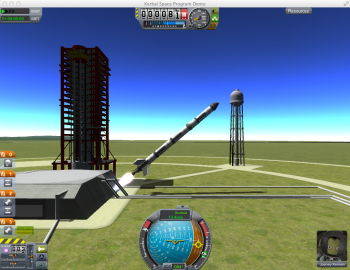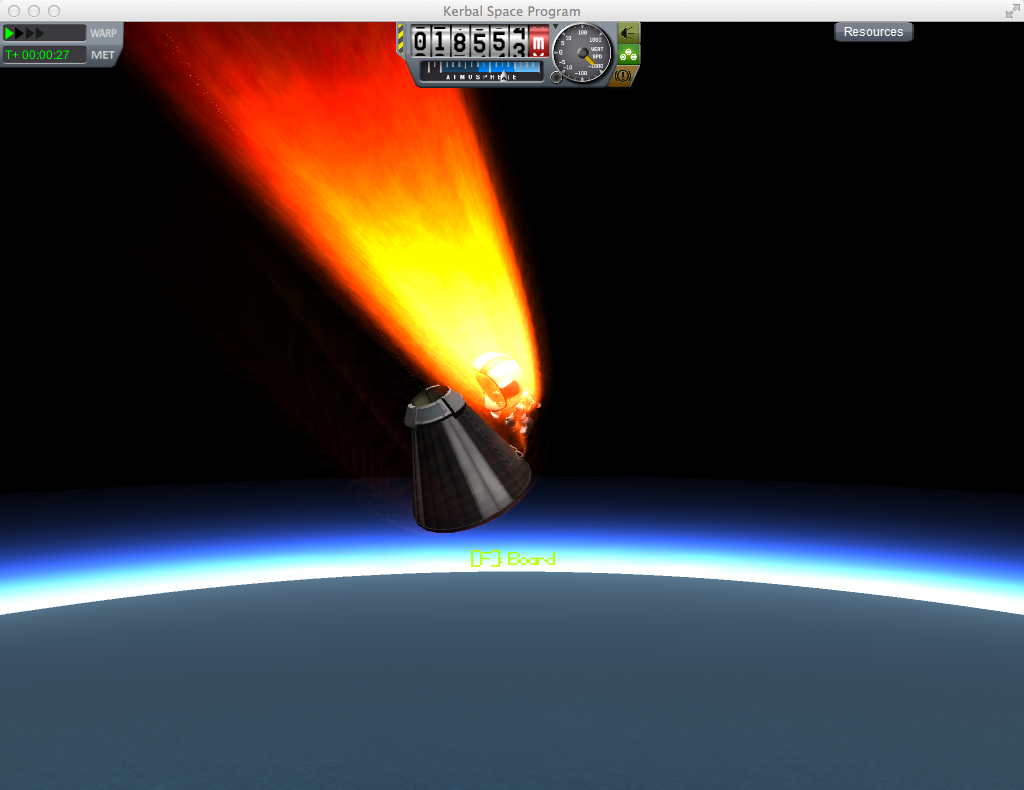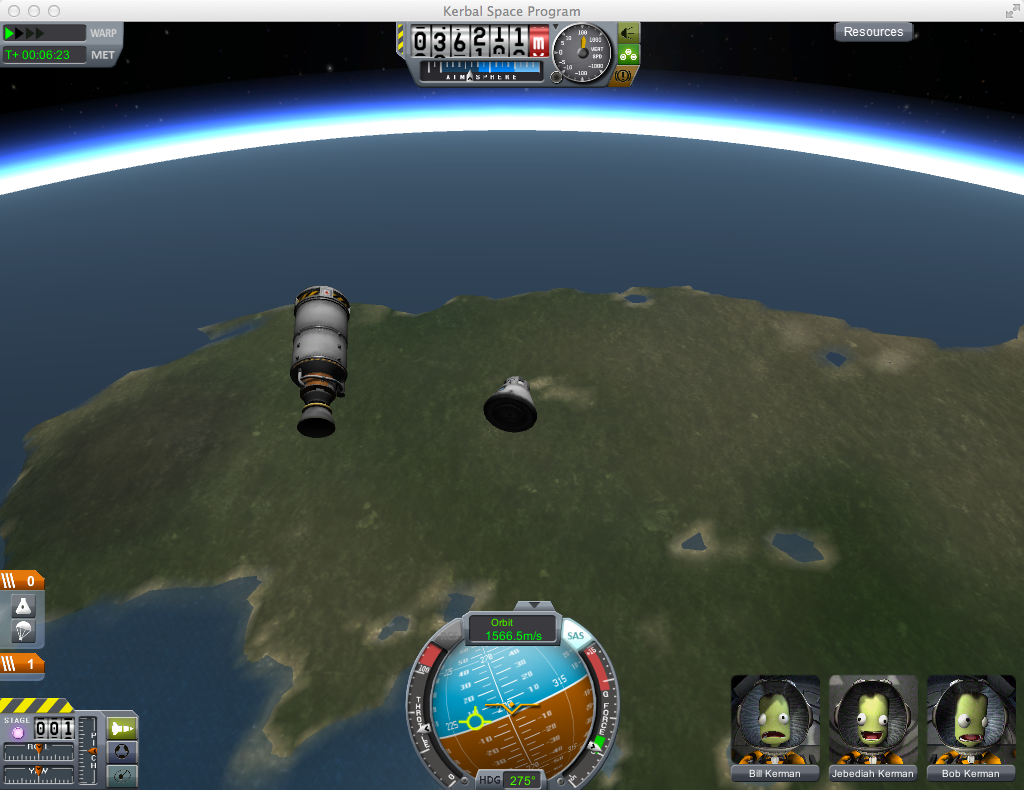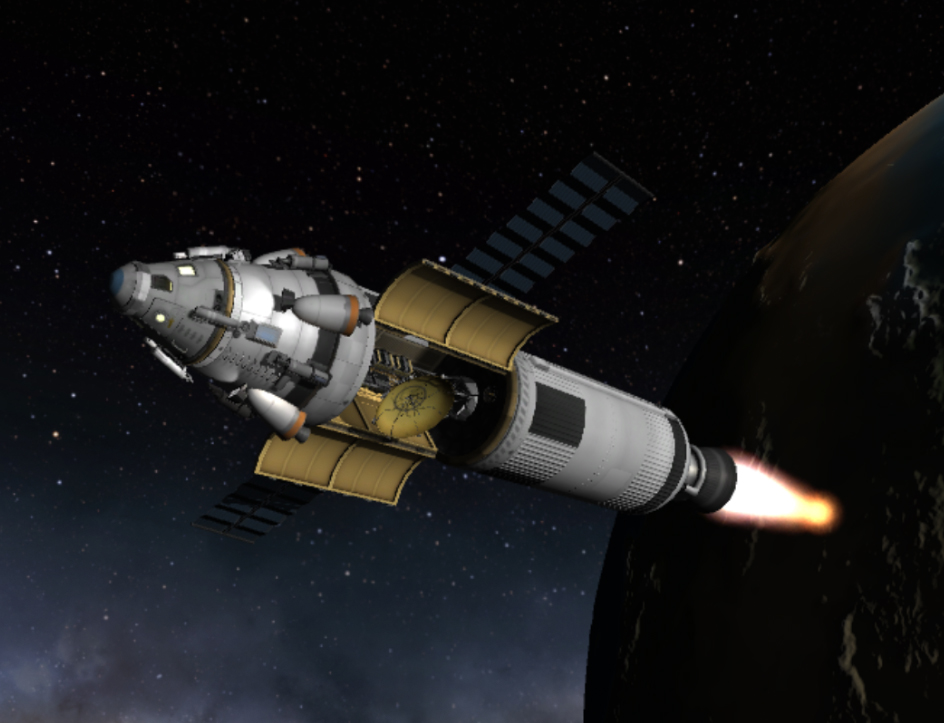
One of my early attempts into orbit, achieving a spectacular fall after a 35 meter ascent
I’ve been playing around with a video game. I have spent, by far, more time with this game than all video game play in my life prior to retirement. And I’m feeling a bit guilty for it. All of my tech work has always been for production, since teaching my self to program TRS-80 (Radio Shack Model I & III) computers in 1982 so that I could write programs for my students (the school system having appropriated $0 for software). With these machines that have so changed my life, I have spent nearly all of my time coding, writing or preparing slide decks for my presentations.

At about 26 Kilometers, my Kerban pilot decided to do a space walk. Alas he locked his keys in the capsule and burned up during the descent.
I’ve had a professional interest in video games, however, especially as research was starting to reveal the powerful learning taking place as kids were playing these games. World of Warcraft (WOW) and Minecraft were especially interesting to innovative educators. A friend of mine started a special class for at-risk high schoolers where he gave them missions or quests to perform as teams in WOW. Then they would debrief with discussion of strategies, not just in achieving the mission but also how they collaborated with each other. The students also wrote reports, as newspaper reporters, about their various missions and their strategies and methods. They were developing skills in math, problem solving, communication and more by actually using those skills in meaningful ways.

These three Kerbans made it into an orbit whose apogee was around 1.4 million kilometers and perigee was somebody’s basement on the far side of Kerbal.
“Authentic Learning” (an instructional approach that allows students to explore, discuss and meaningfully construct their own learning within meaningful contexts) was a term being used a lot among education leaders, until No Child Left Behind corrupted public education, shifting emphasis to rote memorization over functional understanding.
I am thoroughly enjoying the experience learning to play Kerbal Space Program (KSP). Its Wikipedia article defines the game as:
“..a space flight simulation video game developed by Mexican developer, Squad. In the game, players direct a nascent space program, staffed and crewed by green humanoid aliens know as ‘Kerbal.’ The game features a realistic orbital physics engine, slowing for various real-life orbital maneuvers such as orbital rendezvous.”
The first time that I explored KSP was in 2013, preparing for a keynote address at a conference for the National Science Teachers Association. I wanted to use the game as an example of an educational science simulation. Sadly, with only a few days to acquaint myself with the game, I was able to compellingly demonstrated how a rocket can blow up on the launch pad.
Today, after much learning and practice (orbital mechanics is hard), I can finally establish a good circular orbit around the planet, and even loop around the moon. But there is much more that I can’t do you.

More to come!
1 Wikipedia contributors. “Kerbal Space Program.” Wikipedia, The Free Encyclopedia. Wikipedia, The Free Encyclopedia, 13 Sep. 2022. Web. 15 Sep. 2022.
